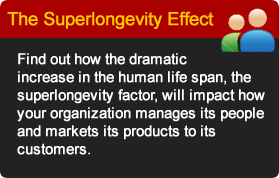RAND:Only 858,000 Bought Insurance Under Obamacare--Support For Law Drops!
RAND:Only 858,000 Bought Insurance Under Obamacare--Support For Law Drops!
April 6, 201411:46 AM MST
According to a newly released RAND Corporation study, barely 858,000 previously uninsured Americans have paid for new policies and received health insurance under the new Obamacare health insurance program.
Critics have pointed out that this number stands in sharp contrast to the Administration's claim that 7.1 million people are newly enrolled in the program.
High premiums, expensive deductibles, and a limited selection of doctors and hospitals have helped erode public support for Obamacare. A recent AP/GfK poll revealed that support for the Affordable Care Act has declined by 13 percentage points since 2010. Only 26% of Americans now favor the ACA, compared with 39% then. A WSJ/NBC poll found that only 29% of independents support the law.
Other polls reveal that the public could very well express its dissatisfaction with the new health- care law at the voting booth in 2014 and beyond. The GOP is slightly ahead of the Democrats for the first time in months in the Associated Press generic Congressional ballot poll. And registered voters favored the Republicans by 14 percentage points over Democrats--51 percent to 37 percent. In January, they were split, with 45 percent preferring the Republicans and 42 percent preferring Democrats.
A strong GOP win in 2014 would be interpreted as a mandate from the American people to either repeal the ACA or change it significantly. Many think fundamental changes to the law could include making the law totally voluntary and eliminating penalties for non-compliance.
Ironically, the media's obsession with the debate over the Affordable Care Act and the political fallout from the law's implementation has tended to distract the public from what many consider the more important health news: Medical scientists and biotech researchers continue to make significant progress in their efforts to dramatically extend the human life span and improve people's overall health.
As I point out in the upcoming new edition of my book Ageless Nation, a host of medical and scientific advancements--nanotechnology, the bioprinting of body parts and organs, stem cell science, genetically re-engineering of the fetus, human enhancement technologies, dechronification, and gene therapy--are setting the stage for a dramatic increase in human life expectancy in the very near future.
Instead of spending our time and energy trying to micro-engineer a labyrinthine government medical insurance system, we should be concentrating our efforts and resources on re- engineering and perfecting the human body.
America's next leaders should adopt as a national mission the achievement of true superlongevity by the end of the 21st century. Hopefully other nations will follow suit. By dedicating our national and global resources to this effort, we can realistically anticipate a future in which humans will live on average 125 years or greater as vibrant, healthy, and physically and mentally dynamic human beings.
DR. ZEY'S PRESENTATION TOPICS



